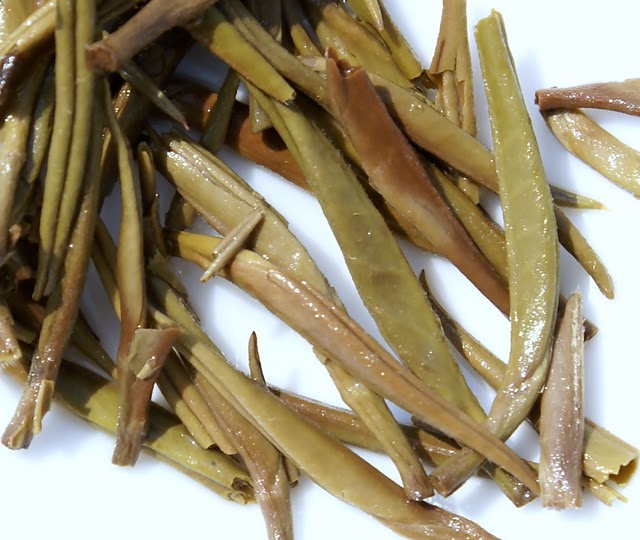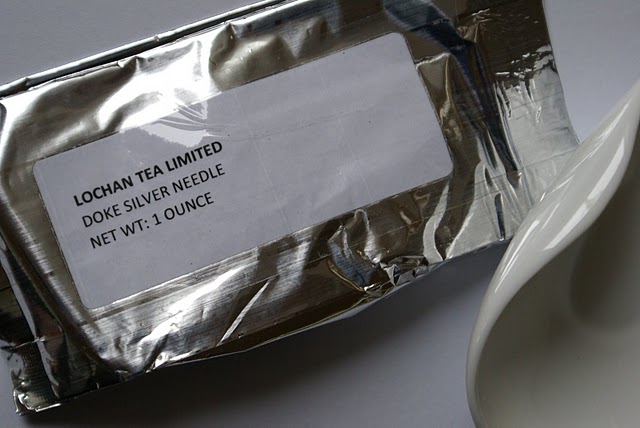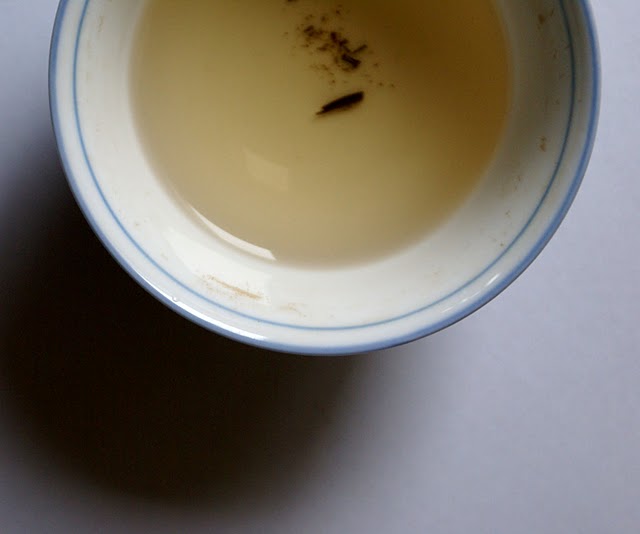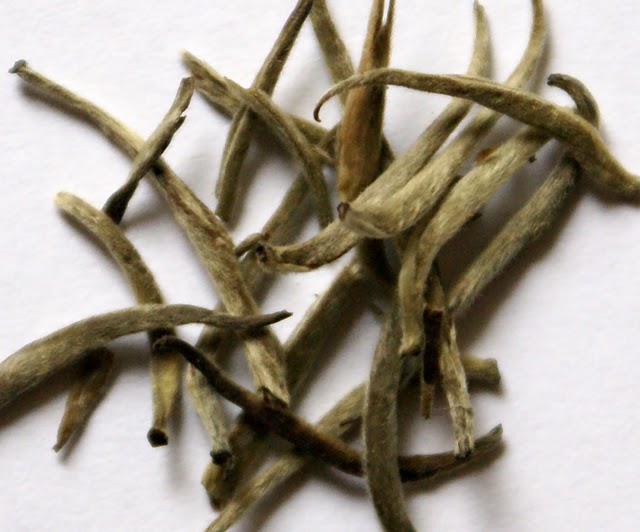2009 Doke Silver Needle
Posted on 28 June 2009
White tea has become a worldwide craze. Virtually unknown a decade ago, you now have white tea on all café menus and supermarket shelves, bagged white tea, strawberries & cream-flavoured white tea, and white tea from all countries between Paraguay and East Timor. I’ve even had some from Malawi, of all places. I think it’s exclusively due to its purported health benefits. (Although tea is so healthy in general you probably don’t need to worry about green having a bit more fluoride than white).
White tea’s rise to popularity is helped by the fact it is hardly difficult to make. Having a tea plantation you always have white tea material at one point. It’s enough to pick the unopened hairy leaf buds in very early spring and process them quickly before they oxidise, and you have white tea. The only problem is cost. Harvest needs to be speedy on unrainy days, followed by uncompromising sorting and immediate processing. A good white tea will set you 30+$ / 100g. Terroir adds its two cents, too, and it will be hard to beat a top-grade Yinzhen example from the Chinese province of Fujian.
This particular tea is from the Doke Tea Farm in India, Bihar. The estate belongs to the family that also runs the Lochan Tea Ltd. operation on the internet. A package of this 2009 Silver Needle white tea was included in my recent shipment of black Darjeelings (and I urge you again to take advantage of Lochan’s brilliant promotion where you can order a sample box of 12 first or second flush Darjeelings paying only shipping costs).
Silver Needle is actually an English translation of the Chinese term yinzhen. It’s the highest grade of white tea (the other three being baimudan, frequently encountered in all tea shops, gongmei and shoumei). Yinzhen is 100% unopened buds covered with tiny white hair (which you should then find floating in your first infusion). Visually it’s one of the most enthralling tea grades, and very easy to recognise. This 2009 Doke is definitely a good-looking yinzhen:
With my patchy experience of non-Chinese whites, I was not expecting much, but this is really a good tea. It brews a very clean and typical cup with aromas of dried herbs, hay, dried fruits and raisins. And unlike many white teas, it’s also pretty consistent on the palate, with good intensity, some sweetness, a light register, and some welcome grapefruity semi-tang on the finish. As all yinzhen, it’s really light and airy but not flavourless. Surely a bit simpler and less fruity than the best Chinese examples but good value ($10 / 100g); I recommend it.
A note on brewing. Yinzhen develops no astringency so many people like to brew it for very long times, typically from 5 to 15 minutes. Opting for a more classic gongfuapproach, I found this Doke Silver Needle prefers slightly high dosage (4g / 100ml) and somewhat high temperature (~80C) to show its best intensity. Brew as you would a green tea: 1 minute, 45–60 seconds, 2 minutes.

Succulent juicy buds: this is good white tea.
November 2009 update: The second flush version of this tea (inferior to the one reviewed above IMHO) is being tasted on Facebook for a Lochan Tea tasting: see here for my note, and check my profile for pics.




